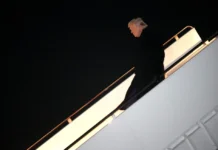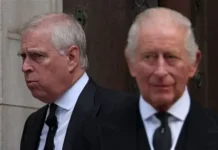Estonia, Latvia, and Lithuania have officially begun disconnecting from Russia’s electricity grid after more than three decades, marking a historic step toward energy independence.
The two-day process commenced Saturday, with residents advised to charge their devices, stock up on essentials, and prepare for possible disruptions.
In some areas, lifts were shut down, and traffic lights switched off.
A landmark ceremony in Lithuania’s capital on Sunday, attended by EU chief Ursula von der Leyen, will mark the final transition to the European grid via Poland.
The move severs ties with the Brell power grid, controlled primarily by Moscow, which had long left the Baltic nations vulnerable despite their NATO membership.
Lithuania’s Energy Minister Zygimantas Vaiciunas described the disconnection as ending Russia’s “geopolitical blackmail.”
Tensions between the Baltic states and Russia have escalated since the latter’s invasion of Ukraine in 2022.
Recent undersea cable damage incidents have raised concerns about potential retaliation.
NATO has responded by launching a Baltic patrol mission, while security agencies remain on high alert for cyber-attacks and disinformation campaigns.
“This is a critical moment,” Latvian President Edgars Rinkēvičs said. “But the risks are identified, and contingency plans are in place.”
The transition signifies a long-awaited victory for the Baltic states in their quest for energy autonomy.



















